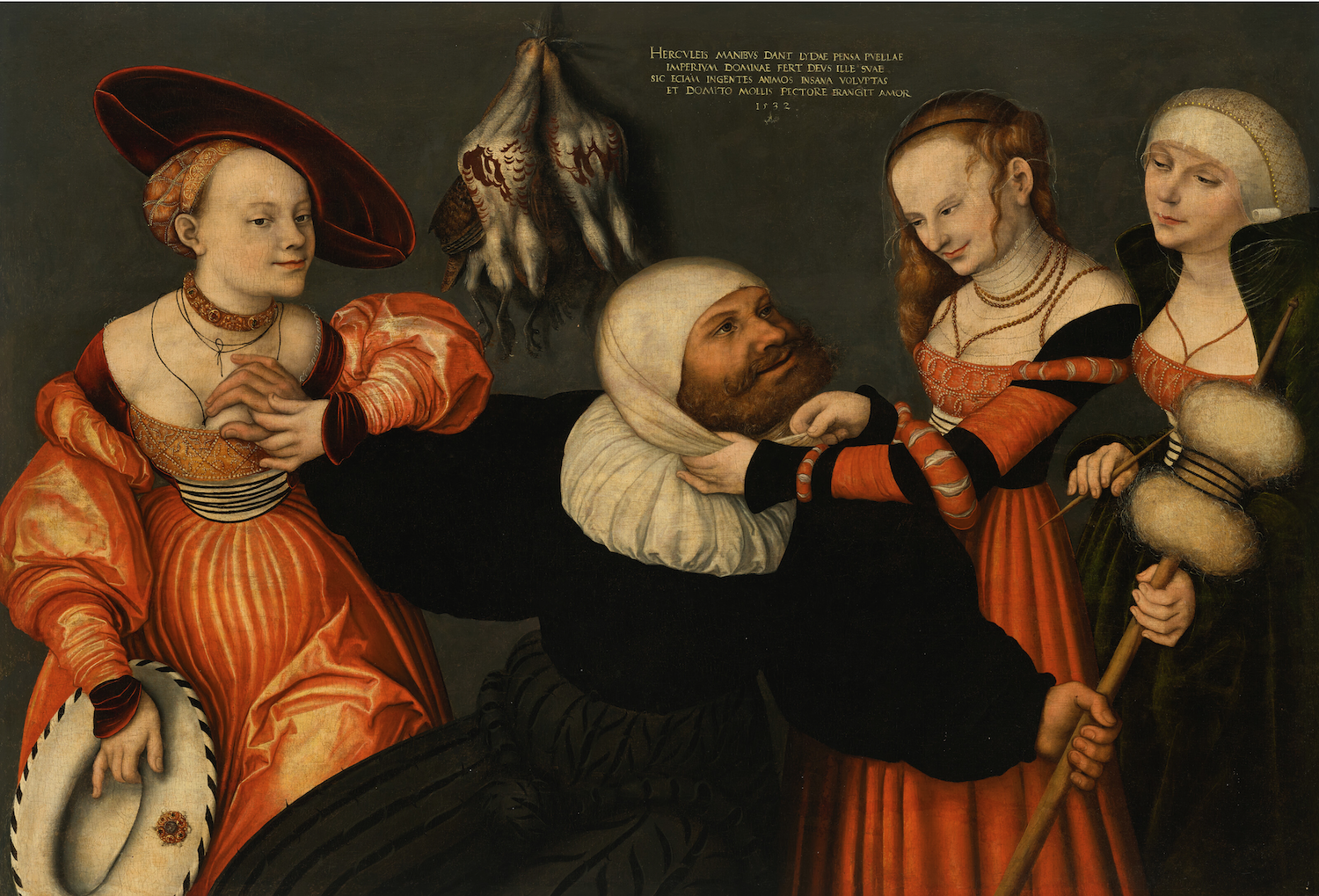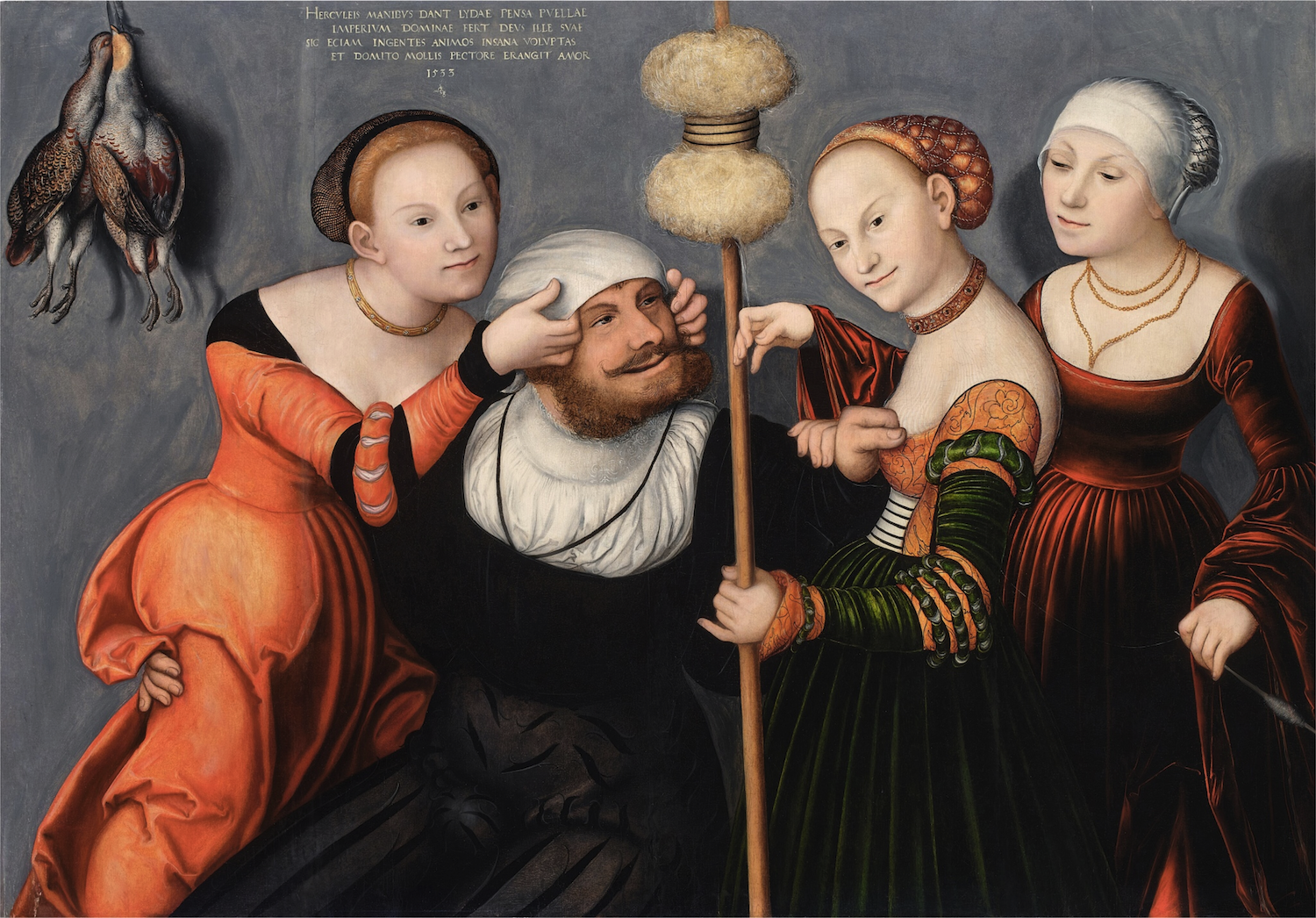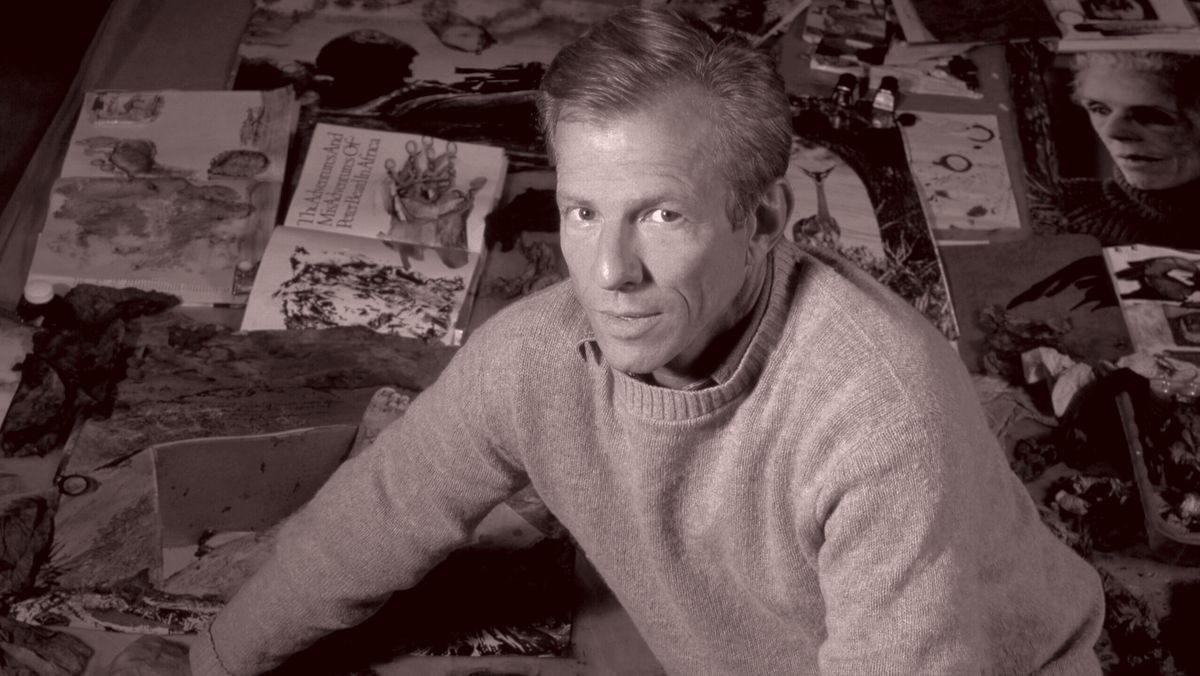Hello, sports fans—and welcome back to Wall Power, your regular
window into the inner workings of the art world, now four days per week. I’m Marion Maneker.
It was truly great to see so many of you upgrade your subscription last Wednesday to the Inner Circle tier, which unlocks the full value of both Wall Power and Puck. I’ll be back with another Inner Circle-exclusive edition tomorrow. (Change your
account status here.) This week, I’ll send out a teaser to regular subscribers and those on trial memberships, just so you can see what you’re missing if you’re not among the elect. Once you do, I’m sure you’ll upgrade. How will you live with yourself otherwise?
For tonight’s issue,
Julie Davich spoke to the leadership at Gurr Johns about their plans for growth, now that the transatlantic appraisal and advisory firm has announced a new C.E.O. The news is on theme with everything we’ve been telling you about the strength and potential growth of the private market. Then, I’m going to look at two versions of a Lucas Cranach painting that are coming up in February’s New York Old Master auctions. I was tipped
off to these doppelgängers by a contemporary art advisor. (That’s a whole other thing: Lately, contemporary advisors and collectors have been paying close attention to the old masters market.) Finally, I look at a lawsuit filed last month on behalf of Peter Beard’s studio. It’s a case study in how the market regulates itself.
Let’s get started…
|
|
|

|
Julie Davich
|
|
An Art World Brokerage Play
|
When I caught up with Charlie
Horne, president of the appraisal and advisory firm Gurr Johns, he was on his way to the Heckerling Institute on Estate Planning in Orlando. Heckerling, as the gathering is known in the industry, is about as exciting as you’d imagine for a conference of estate lawyers and bankers—but the event does offer an essential glad-handing opportunity for auction houses and appraisal firms. Charlie will no doubt be touting the news that Maarten ten
Holder is joining Gurr Johns as C.E.O. to oversee the firm’s growth strategy, first in the U.S. and then globally.
Ten Holder spent nearly 25 years at Sotheby’s, shuttling back and forth in operational roles between Europe and New York before taking over the global luxury business and then the classic car division after the acquisition of RM. Most recently, he was at Bonhams
for three years heading up its very British “Motoring department.” He arrived at Gurr Johns last week after a six-month gardening leave.
Gurr Johns’ core business for the past 110 years has been appraisals—a somewhat limited service offering, given the time and expertise involved, as well as the general frugality of clients. Indeed, most collectors view the process as a necessary evil to
placate their insurance companies and tax advisors, rather than as an investment of sorts. Gurr Johns also offers advisory services, which comprise only a small part of the business and are usually just an upsell on the appraisal relationships. Unsurprisingly, ten Holder is expected to operationalize and expand this channel.
The firm, as I discussed with ten Holder, is also looking to launch a brokerage
offering. Gurr Johns inaugurated its new Paris office this past fall with a private selling exhibition of 20 cubist portraits—including a Picasso paper collage that sold at Christie’s in 2014 for $4.3 million—and its London team has mounted shows of primary-market works for the past few years. That’s not a big deal for a firm that appraised $15 billion in art last year and has a massive database to match sellers with buyers. As Marion
noted on Sunday, auction sales are still mired in a downturn, but private sales have been thriving, especially after the November elections.
Standing up a brokerage business is rife with challenges, of course. Gurr Johns built its core business on the trust of clients
who largely don’t want the auction houses to know what’s in their portfolio and make deals on that information. Indeed, the words “independent” and “nonconflicted” take pride of place in company marketing materials. Will this new brokerage business undercut that positioning?
Ten Holder seems aware of the delicacy of the task. Horne suggested that the difference between Gurr Johns’ brokerage and the private sales armies at
the big galleries and auction houses would come down to the appraiser’s pricing expertise. “Understanding value,” he told me, “is how to sell something well.”
|
|
|
Lucas Cranach the Elder, Hercules and Omphale, estimated at $1,000,000
|
From time to time, similar works by the same artist come up for auction in the same
season. A few weeks ago, an art advisor was quick to point out that Sotheby’s and Christie’s had both just announced similar work by Lucas Cranach the Elder depicting Hercules in submission to the princess Omphale in their early February Old Master sales. Christie’s, which is selling the slightly more expensive version, Hercules and Omphale, with an
estimate of $1 million, notes in their marketing materials that Cranach painted at least 35 of these images, which portray Hercules emasculated by wearing a bonnet and grasping a distaff, the weaving tool that was associated with women’s work. The paintings come from a genre called weibermacht, which cautioned against the supposed dangers of women gaining power. There are other classical subjects used to illustrate the idea of weakened men, but the Hercules and Omphale theme is
“specific to Cranach,” the Sotheby’s old master specialist Daria Foner told me. “The throughline is the admonition to beware of the wiles and power of women.”
|
Lucas Cranach the Elder and Workshop, Hercules at the Court of Omphale,
estimated at $700,000
|
By comparison, Sotheby’s version of Hercules in the Court of
Omphale, from 1533, is estimated at $700,000. The work was among the first to be painted in the popular series—a brief run that would last five or six years. Foner suggested the imagery may have become too popular, and Cranach simply moved on.
Cranach has
seen his status rise in the market of late. When a new record for the artist was set at $14.3 million, in 2015, the price seemed like an outlier for a long time. But time moves at a different pace in the old master world. (After all, both of the Cranachs depicting Hercules have been in their consignors’ collections for more than 20 years.) In 2018, Cranach’s portrait John Frederick I, Elector of Saxony, made $7.7 million. Then in 2022, The Nymph of the Spring, which features a
full-length nude with a diaphanous veil, sold for $11.3 million. Two of the figures in Christie’s Hercules painting have similar veils. Indeed, Foner pointed out that classical figures in “stylized present-day clothing” was one of Cranach’s signature innovations. The artist, said Foner, had a “superb way of rendering fabric, and you see that in the costumes that he paints, which gives him an enduring appeal.”
And now,
the main event…
|
|
|
The strength and quality of an artist’s studio or foundation can be
the difference between their legacy dissipating into the ether or gathering strength with time. And soon enough, Beard’s own fate might be decided.
|
|
|
Peter Beard’s extraordinary life—do we have the
space to list all of the artists (Francis Bacon, Andy Warhol) and models (Cheryl Tiegs, Iman) and writers (Karen Blixen, Truman Capote) and society figures (Lee Radziwill) with whom he collided?—was messy. He made his name, beyond the rewards of his preternatural good looks, as a photographer and adventurer—traveling between Kenya and Montauk, with long pauses in
Manhattan nightclubs, taking photographs and keeping voluminous diaries. Over time, the border between his life and art—often hand-worked with text and drawings and the story of his life—which was never easily defined, would disappear completely.
In early 2020, Beard, suffering from dementia and the after-effects of a stroke, wandered away from his Montauk home and died in the woods at the age of 82. Now,
after years of a slowing market, Beard’s studio is trying to reassert itself. Last month, lawyers for the studio, run by his widow, Nejma, filed a lawsuit against Heritage Auctions. At dispute is the sale
of 51 lots held on October 25 entitled In Focus: Peter Beard Showcase, of which 38 lots were sold for $97,669. (A portion of the proceeds was meant to go to a charity called Aprile’s Memorial French Bulldogs Special Needs Support Services.)
The studio argues that the consignor never had a right to sell the items, and is upset that Heritage did not consult with them about the nature of the materials before the sale. Some of the
material, they contend, belong with the estate of Karen Blixen, the Danish adventurer and resident of Kenya. Many of the lots were manuscripts or personal photographs, diary pages, or even books, including Beard’s personal copy of Blixen’s Out of Africa.
Once the studio was aware of the sale, the lawsuit asserts, they tried to contact Heritage to tell the auction house the works were in fact
Beard’s personal effects, journals, and ephemera, and thus should not be marketed and sold as examples of his art. Indeed, the studio objected to the idea of a single-artist sale without any of the artist’s actual work. They never heard back from Heritage. “As a last resort, the studio brings this lawsuit,” the filing states, “to signal clearly to Heritage—and the market generally—that it will not tolerate this type of blatant disregard for the integrity of Beard’s body of work, and his
artistic legacy.”
In other words, the studio seems most concerned with asserting its role as the arbiter of what is, and what is not, a Beard work of art. Established in 2001 to address the haphazard way that Beard dealt with his work since the mid-1980s, the studio is tasked with creating an archive of his artwork, complete with
inventory numbers, to help authenticate pieces, as well as order and preserve his many journals. Before he died, Beard was an active participant in the studio’s work. He edited books about his own work; helped authenticate work and monitor the market for his unique objects; and worked with the archivist to create a database. And, as the only source for artwork by Beard, the studio has an interest in policing his secondary market.
|
With fewer catalogues raisonné being published these days,
and the need for more responsive databases, artists’ studios and estates have turned to providing archive numbers as evidence of authentication—a fairly responsive resource that helps define an object and situate it within the body of the artist’s work. Some estates or studios—such as those of Philip Guston, Roy Lichtenstein, and Gerhard Richter—have comprehensive databases that are available to the public. Others, like the Calder Foundation,
have closed systems. Good record-keeping and a responsive studio or estate are often necessary, though not necessarily sufficient, conditions to grow an artist’s market.
And Beard’s market needs some growth. Although a large photo collage, Lion at Night, from 1984, sold for $327,000 in May of 2023, it’s been quite some time since top prices advanced for his work. From 2011 to
2017, seven different works sold at auction for prices above $300,000, including three that achieved prices above $600,000. Since then, and especially after his harrowing death, the auction market for his work has cooled.
One of the shibboleths of the art market is that it is lawless and unregulated. But that’s not true. Auction houses and art dealers are subject to commercial laws, and more importantly, the market has developed its own systems of
self-regulation. The strength and quality of an artist’s studio or foundation can be the difference between their legacy dissipating into the ether or gathering strength with time. A spokesperson for Heritage Auctions said, “Heritage will be filing a response to this frivolous lawsuit within the next two weeks.”
|
That’s it for today. Tomorrow’s Inner Circle email is an interview
with Mattia De Luca about his hugely popular Giorgio Morandi exhibition last season. There’s another important Morandi show of the trove of works held at the Magnani-Rocca Foundation about to open at David Zwirner later in the week.
Don’t forget to sign up for the Inner Circle to get access to the interview.
M
|
|
|
Puck founding partner Matt Belloni takes you inside the business of Hollywood, using exclusive reporting and
insight to explain the backstories on everything from Marvel movies to the streaming wars.
|
|
|
The ultimate fashion industry bible, offering incisive reportage on all aspects of the business and its biggest
players. Anchored by preeminent fashion journalist Lauren Sherman, Line Sheet also features veteran reporter Rachel Strugatz, who delivers unparalleled intel on what’s happening in the beauty industry, and Sarah Shapiro, a longtime retail strategist who writes about e-commerce, brick-and-mortar, D.T.C., and more.
|
|
|
Need help? Review our FAQ page or contact us for assistance. For brand partnerships, email ads@puck.news.
You received this email because you signed up to receive emails from Puck, or as part of your Puck account associated with . To stop receiving this newsletter and/or manage all your email preferences, click
here.
|
Puck is published by Heat Media LLC. 107 Greenwich St, New York, NY 10006
|
|
|
|


















